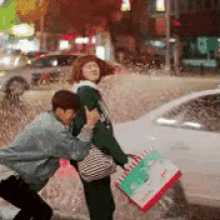Friendships are unique bonds that make our lives more exciting by allowing us to share moments that matter with people who care about us and are there for us when we need them the most. However, at other times friendships can pose challenges that can end in a lack of understanding, disagreements, and even separation.
A breakup with a friend or even a group of friends can be emotionally stressful and needs precise navigation to be healthy. In this article, we will cover ways of dealing with hurt feelings, negotiating stressful decisions, asking ourselves if the friendship is repairable, and most importantly, recovering in case the repair is not.

Image credits: Josue Michel from Unsplash
Getting Over The Initial Shock
The aftermath of a breakup is undoubtedly devastating, and coming to terms with the situation is often overwhelming. Overall, the first step in coping is to let go of the pain you have been bottling up. When emotions are released, they are not limited to existing in a fixed time schedule, and consequently, can take up a lot of time to be properly processed and understood.
Emotions such as grief, anger, and disappointment are all part of the healing process and are completely normal to feel in such a period of your life. Keeping a journal is one way to express such feelings.
The process of writing down personal struggles or especially hard-to-swallow thoughts can have a therapeutic effect. Sharing your feelings with someone you care about is another beneficial way to stay healthy. This can be someone close to you, such as a family member or another friend, to whom you can open up and process what you are going through. Through open discussions like those, you can discover new perspectives on the matter as well as seek comfort.

Image credits: Jackson Simmer from Unsplash
Understand The Cause
It's important to understand the reason for the fall-out, as it can assist in the recovery process. Taking time to consider the reasons that ultimately led to the separation can serve to better understand why the friendship ended to begin with.
Was it one of the problems during a conflict, which was never able to be completely resolved? Was the breakup between you and your friend the result of a series of events, or did it just happen suddenly in one day? Knowing one of the possible reasons could help you determine what steps to take to avoid this from happening again in the future.
Adding to that, it wouldn’t be wrong to consider both sides of the story. It is normal to feel like the victim and feel justifiably angry, but understanding your role can make you see the good in the current situation. Reflection and personal responsibility will help understand why the friendship couldn’t possibly go on.

Image credits: Everton Vila from Unsplash
Healing The Wounds
A complete healing process that needs to take place after a fall-out with a close friend involves a lot of emotional and mental skills. Self-care becomes particularly important during this part. Engage in all sorts of activities that bring you joy and relaxation, for example, reading, exercising, meditating or spending time with other friends. Taking care of your physical health can also have a positive impact on your emotional well-being.
Another thing that may be needed in the healing process is the use of boundaries. If you have endured some bad behaviour from your friend, walking away may provide some much-needed distance. This process is not about finding a compromise that keeps them pleased and comfortable, but it should finally give you room to heal at your own pace without a toxic environment surrounding you.
Forgiveness is also a powerful and important step to create the way for healing. Holding grudges and being angry doesn't mean you shouldn’t forgive but it just means you can let go of bad feelings and move on.

Image credits: Harli Marten from Unsplash
Reconciliation Or Letting Go
After some time has passed and the first wounds have begun to heal, you may find yourself at a crossroads: Should you just try to rebuild the friendship, or should you just accept your efforts of moving on during the difficult times? This decision depends on the depth of the fall-out, how well both sides can repair it or how much effort they are willing to put in, and how hard it could be to resolve the issues that caused the rift in the first place.
If you choose to rebuild a broken friendship, be willing to listen and even change. Communication is very important in this case. You need to talk openly and respectfully about what happened and what each side needs, to be able to rebuild the relationship.
Knowing what to expect and that it might not ever go back to the old relationship is a good start. Over time, a new kind of relationship can replace the old one.
On the other hand, if a friend has been behaving poorly during the fall-out, or if rebuilding and resolving issues seems impossible, the best solution is to break off the friend for good. Of course, this is not easy, but it is an important step in moving forward. Grieving the friendship that you once had is the only way in this scenario, but in time you will find new relationships and friendships that happen to bring you more joy.

Image credits: Yuvraj Singh from Unsplash
Moving Forward
Trying to start a new chapter in life after losing a close friendship is hard, but it could possibly lead to something better. It’s time to focus on yourself and expand your horizons. Think of yourself as having matured from the experience, in addition to the lessons you have learned from this fall-out, and how you can apply those lessons in your next friendships.
You can make new friends or even work to strengthen existing ones as part of recovery. Attend social events, sign up for student organizations that share your interests and hobbies, and be prepared to interact with other personalities out of your comfort zone. In addition, by paying attention to your goals and passions, you have a way to discover what is truly important to you. Whether it is your professional skills, your hobbies, or your personal development, channeling your energy into positive goals will, quite reasonably, bring you success in life.
The Next Part
Leaving a significant friend is certainly a difficult event in one's life, but it can also turn into something that brings blessings and benefits. Getting over the initial shock, realizing the reason behind it, overcoming this unpleasant feeling, and finally making a decision to either move on or resume the friendship with them can help you get through this stressful situation.
The next part involves accepting possibilities and opportunities and forming new personal relationships that will eventually lead to a happier life. A lost friendship may find a path to new and even more meaningful people and possibly even stronger friendships.



















